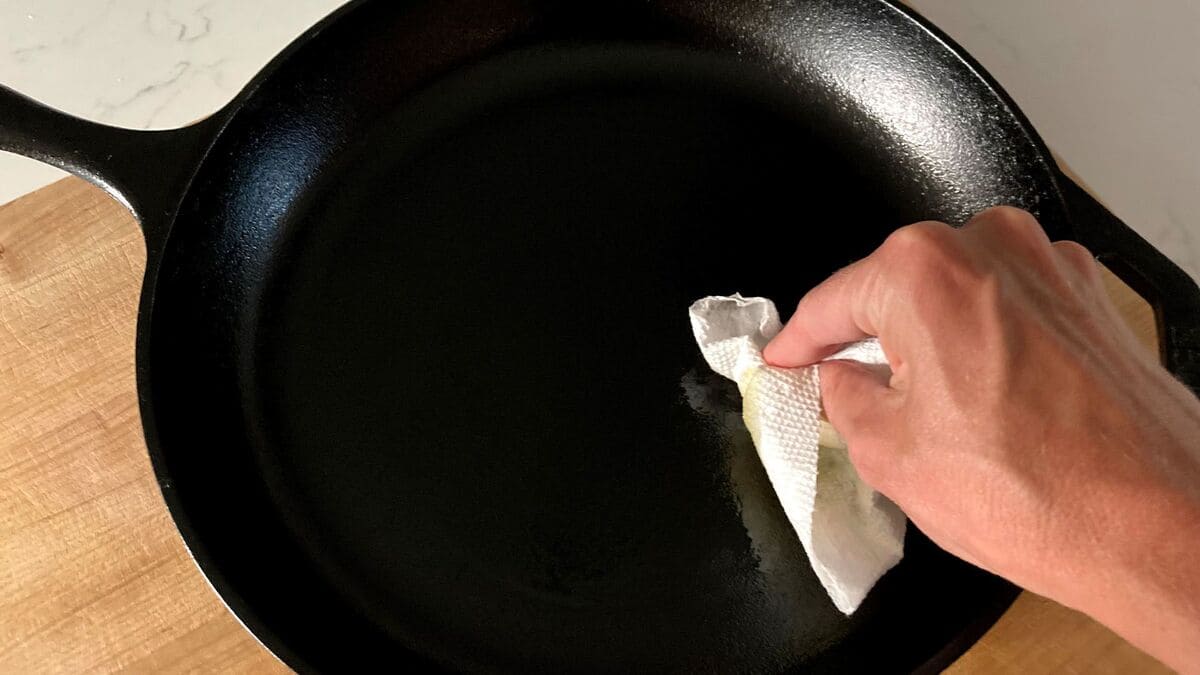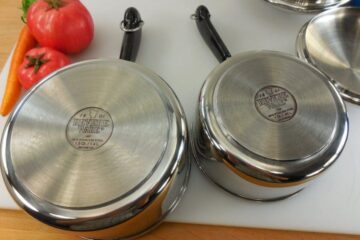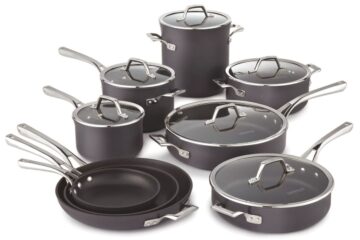Cast iron cookware has been a staple in kitchens for centuries due to its durability, versatility, and ability to retain heat. However, it requires proper care and maintenance to ensure it lasts for generations. In this article, readers will learn how to care for their cast iron cookware to keep it in top shape.
The first step in caring for cast iron cookware is to properly season it. Seasoning involves coating the cookware with a layer of oil and baking it in the oven to create a non-stick surface. Once seasoned, it’s important to avoid using soap when cleaning the cookware as it can strip away the seasoning. Instead, use hot water and a stiff brush to remove any food particles.
Why Cast Iron Cookware Needs Special Care
Cast iron cookware is a popular choice among home cooks and professional chefs alike. It is durable, versatile, and can last for generations if properly cared for. However, unlike other types of cookware, cast iron requires special care to maintain its quality and performance.
One reason for this is that cast iron is prone to rusting. Unlike stainless steel or aluminum, cast iron is made of iron, which is a reactive metal. When exposed to moisture, iron can rust, leading to a rough, pitted surface that can affect the quality of your food.
Another reason is that cast iron is porous. This means that it can absorb flavors and odors from the food you cook, which can affect the taste of future dishes. Additionally, if not properly seasoned, cast iron can stick, making it difficult to cook with and clean.
To prevent rusting, it is important to keep cast iron dry. After washing, it should be thoroughly dried with a towel or placed over low heat to evaporate any remaining moisture. Seasoning with oil can also help protect the surface from rust.
To prevent flavor transfer, it is recommended to have separate cast iron pans for different types of food, such as one for savory dishes and another for sweet dishes. Proper seasoning can also help create a non-stick surface, making it easier to cook with and clean.
Seasoning Your Cast Iron Cookware
Cast iron cookware is a staple in many kitchens because of its durability and versatility. However, it requires proper care to ensure it lasts for years to come. One of the most important steps in caring for cast iron cookware is seasoning it. Here are the steps to follow:
Cleaning the Cookware
Before seasoning your cast iron cookware, it’s important to clean it thoroughly. Use warm water and a mild dish soap to wash the cookware, making sure to remove any food particles or debris. Avoid using steel wool or other abrasive materials that can damage the surface of the cookware.
Oiling the Cookware
Once the cookware is clean, it’s time to oil it. Use a neutral oil like vegetable oil or canola oil to coat the entire surface of the cookware, including the handles. Use a paper towel or cloth to spread the oil evenly and remove any excess.
Baking the Cookware
After oiling the cookware, it’s time to bake it. Preheat your oven to 350°F. Place the cookware upside down on the middle rack of the oven (with a sheet of aluminum foil on the bottom rack to catch any drips). Bake for one hour, then turn off the oven and let the cookware cool down completely inside the oven.
Repeat this process a few times to build up a good seasoning on the cookware. Over time, the cookware will develop a natural non-stick surface that makes cooking and cleaning a breeze.
Cleaning Your Cast Iron Cookware
Cast iron cookware is a durable and versatile option for any kitchen. Proper care and maintenance of your cast iron cookware will ensure it lasts for generations. One of the most important aspects of caring for your cast iron cookware is cleaning it properly. Here are some tips for cleaning your cast iron cookware:
Cleaning After Each Use
Cleaning your cast iron cookware after each use is essential to keep it in good condition. Here are the steps to follow:
- Rinse the pan with hot water while it is still warm. Do not use soap, as it can strip the seasoning from the pan.
- Use a stiff brush or sponge to remove any food particles or residue. Avoid using steel wool or abrasive cleaners, as they can scratch the surface of the pan.
- Dry the pan thoroughly with a clean towel or paper towel.
- Apply a thin layer of oil to the pan to prevent rust and maintain the seasoning.
Deep Cleaning
If your cast iron cookware has stubborn stains or buildup, you may need to give it a deep cleaning. Here’s how:
- Fill the pan with equal parts water and white vinegar.
- Bring the mixture to a boil and let it simmer for 10-15 minutes.
- Use a stiff brush or sponge to scrub the pan, paying special attention to any stubborn spots.
- Rinse the pan with hot water and dry it thoroughly.
- Apply a thin layer of oil to the pan to prevent rust and maintain the seasoning.
Removing Rust
If your cast iron cookware develops rust, don’t worry. It can be removed with a little elbow grease. Here’s how:
- Scrub the rusted area with a stiff brush or steel wool until the rust is gone.
- Rinse the pan with hot water and dry it thoroughly.
- Apply a thin layer of oil to the pan to prevent further rust and maintain the seasoning.
Storing Your Cast Iron Cookware
Cast iron cookware is a prized possession for many home cooks and chefs. Proper storage is essential to keep the cookware in good condition and prevent rusting. Here are some tips for storing your cast iron cookware:
Drying the Cookware
Before storing your cast iron cookware, make sure it is completely dry. Moisture can cause rusting, which can damage the cookware. After washing the cookware with soap and water, dry it with a towel and then place it on the stove at low heat for a few minutes to ensure it is completely dry.
Storing the Cookware
When storing your cast iron cookware, it is important to keep it in a dry place with proper ventilation. Avoid storing the cookware in areas where it can get wet or humid, such as near the sink or stove. Here are some tips for storing your cast iron cookware:
- Stack the cookware with paper towels in between to prevent scratching and rusting.
- Store the cookware with the lids off to prevent moisture from getting trapped inside.
- Hang the cookware on hooks to save space and provide better ventilation.
- Avoid stacking the cookware too high, as it can be difficult to remove and may cause damage.
Conclusion
In conclusion, cast iron cookware is a versatile and durable option for any kitchen. With proper care and maintenance, it can last for generations.
To care for cast iron cookware, it is important to season it properly before use, avoid using soap when cleaning, and dry it thoroughly after each use. It is also important to store it in a dry place and avoid stacking it with other cookware.
If the seasoning on the cast iron begins to flake or wear off, it can be easily re-seasoned with oil and heat. It is important to avoid using acidic foods in cast iron cookware, as this can damage the seasoning and cause rusting.
Overall, with a little bit of care and attention, cast iron cookware can provide a lifetime of use and enjoyment in the kitchen.



